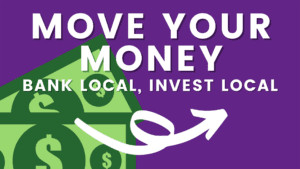Following up on Why you procrastinate on invoicing and what to do about it, Chris Van Patten sent this question by email:
It’s great to have clients who pay on (or ahead of!) time, especially when I have to deal with other clients who still don’t pay months after the job is done. I’d be interested to get the Small Biz Survival perspective on that!
Let’s come up with some good solutions together.
If you’re using an automated billing system, make sure you take advantage of all the tools it gives you to make this easier. If you are producing invoices with a spreadsheet or word processor, it’s all up to you. This is another place for a system.
1. Set a clear payment date right on the invoice.
If it’s appropriate or needed, set a late payment penalty. If you do, be very clear about it on the invoice.
2. Keep a clear record of who has paid and who hasn’t.
This should be automatic with a billing system. If you’re working by hand, keep a simple list of who still owes how much.
3. Re-invoice, and escalate when you have to.
If you haven’t been paid, don’t ignore the problem. Send another invoice or statement. Use your calendar program to remind yourself when it’s time to follow up. Move up to a phone call. It’s a pretty rare client that resists a direct request for payment. And if you drop in to see them….
Be understanding of those who are having problems, but don’t continue to throw good work after bad.
What about the folks who put you off, string you an ever-changing story, and don’t ever seem to pay? Recognize that you may never get your money from them, but keep at it.
I’ll bet that you have more ideas on this. I’d love to hear them in the comments.
New to SmallBizSurvival.com? Take the Guided Tour. Like what you see? Get our updates.
- About the Author
- Latest by this Author
Becky started Small Biz Survival in 2006 to share rural business and community building stories and ideas with other small town business people. She and her husband have a small cattle ranch and are lifelong entrepreneurs. Becky is an international speaker on small business and rural topics.











Hi Becky,
Here’s my low-tech approach: I have a (paper) folder that marked Invoices Pending. I print out a copy of every invoice and stick it in the folder. At least once a week I check the back invoices, and send out queries on anything that’s overdue.
In addition, I move all paid invoices to my Invoices Paid 2009 file. That way I have a paper record, which I’ve found is the best way for me to make sure nothing has slipped through the cracks. Plus it serves me well as a handy backup to my (often lagging) electronic bookkeeping method.
Daria, that is simple, easy, low tech, and beautiful. Glad you shared it!
I use freshbooks, they have a tool that will send out reminders every X number of days for unpaid invoices.
I send one out 29 days after reminding clients payment it do tomorrow and reminding them of the late fees mentioned in the proposal and invoice.
Another at 45 days letting them know the amount is past due and a late fee was applied.
And a final at 65 days warning that I may turn them over to collections.
In 12 years I’ve only had 2 invoices go 60 days.
Chris, you have a good system going there in Freshbooks. Thanks for sharing it!
Your tweet/post reminded me that I needed to get on the phone to a client who has not paid his last 3 monthly hosting/service contract invoices. The technique that usually works for me is to include a statement and a note with any invoice on an overdue account (I use Quickbooks) but that wasn’t working in this case.
Turns out as I kind of suspected, that he just doesn’t have the money to pay most of his bills, including ours. Which leads to a secondary question: How do you renegotiate an overdue amount to maximize what you can realistically hope to collect? I’m going to talk it over with my partner and see what we can come up with.
Greg, this is very much a real-world issue. Here are two comments from Facebook that I think address this very question:
Jeanne Cole (@okiej on Twitter):
slow pay is better than NO pay! A closed door will NEVER pay so do what you can within reason to work with struggling customers to help them turn around.
Phillip J. Zannini (@phillymac on Twitter):
Be kind as long as they’re earnest.
I tend to be pretty lenient myself for individual clients. I’d like to think someone would be lenient with me, if I needed some space.
I also found that the worst abusers were big corporations. When my husband did welding, he repaired something that required us to bill GE Capital. They were always a pain to deal with, and always stretched their payment out past 60 days. Real people are almost always much easier to work with!
You must weed out unprofitable customers (read the BusinessWeek.com, Oct./Nov., 2007 article). Every company has customers that cost more than they add to the bottom line. Identify them, evaluate how to make them profitable customers, and if that’s not possible, politely hand them to your competition.
I think that is a whole ‘nother article.
There will always be issues on payment regardless of the method of invoicing. What we need to address is our weaknesses (personal and business) and how they impact our receivables.
Daria uses the “low-tech” approach. She is obviously very well organized, well disciplined, and perceptive of her weakness (electronic bookkeeping). Her strengths are definitely used to her advantage in her invoicing method.
Like Chris, we have found that an online system works best, especially when we can schedule (as Chris did) the “coming due” reminders and “past-due” notices without relying on our memories (some days I need an infusion of RAM), a calendar, or day-to-day hurdles. This “auto-mail” allows us to focus on the current job and customer!
The fact that we can construct our own e-mails worded as graciously yet firmly as we want is a big asset.
And there is a definite difference between online accounting and online invoicing programs. The accounting program is “Bookkeeping” oriented — let’s keep track of our cost of doing business.
The invoicing program focuses on: do the work, send the invoice, get the money. And, hey, let’s look professional and eco-friendly while doing it!
Will we always have s..l..o..w or non-payers? Yes.
And as Becky said – whole ‘nother article.
Thanks, Joan, for your perspective.
As a writer, I sell a service versus a product. I find that if I negotiate payment terms – in writing- before a project is started, I have much better luck in collecting. A simple email, with the client agreeing to the terms, has been enough. I include a small discount in the invoice if it is paid before the due date.
I had one client early in my career that would not put terms in writing and would only make verbal promises. I knew it was a red flag, but being a hungry copywriter, I kept my fingers crossed that the client would pay. You can guess the rest. I chock it up to a lesson learned early on and have never repeated it since.
Denise, well, that is one lesson learned. But you make a good point: be sure you are spelling out terms in writing with all your clients.
Becky, your tips on setting up an invoicing system are great. I use Quickbooks which takes care of the first 2 steps. Speaking of re-invoicing and escalating though – I recently had a situation where a very large client was very late on some big invoices (over 4 months late). It took me a while to get the money back (I wrote about the whole process and lessons learned here – http://oneclickva.com/how-to-avoid-deadbeat-clients/).
The entire process was nerve-wrecking and basically ended our long-term work arrangement on a very sour note. Ever since then my invoice rule is I don’t do any new work until the outstanding invoice is paid in full.
Yelena, you’ve not only learned a great deal, but you have shared it very well! These things are easy to write about, until they happen to you.
I encourage everyone to read Yelena’s story: http://oneclickva.com/how-to-avoid-deadbeat-clients/
Thanks for a great article and the really great comments with practical advice.
Apologies for the self promotion, but I think its relevant to small businesses getting paid quicker. When a customer receives your invoice (and everyone else’s), they need to get the information from the pdf or paper invoice into their accounting system. This has to be done before payment can occur. That step obviously
takes time and slows things for them and you.
Emailing a computer readable invoice means they can suck the invoice straight into their accounting system without error. They save time and pay you quicker – a win-win for everybody.
We started a company to deliver this functionality to small businesses and the product is called billFLO. It works with lots of accounting systems including Freshbooks and Quickbooks. And, its free! You can check it out at http://www.billflo.com
Kind regards,
Ian Sweeney
CEO billFLO
Ian, we’re going to give you bonus points for disclosing your self promotion up front. Now, if you were only from a small town… :)
Thanks for sharing your service. Looks like a good thing if you invoice the same clients repeatedly.